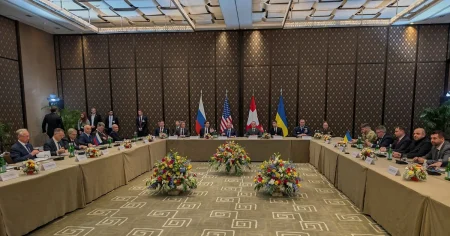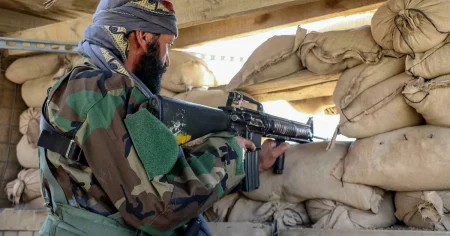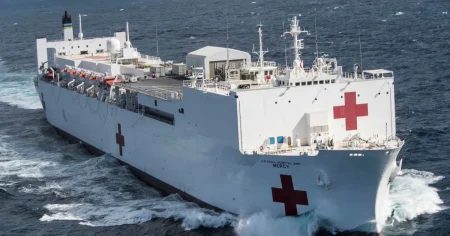Between October 7, 2023, and June 2024, a grim pattern of attacks against healthcare facilities unfolded in Gaza. A United Nations report documented 136 Israeli attacks targeting 27 hospitals and 12 other healthcare facilities during this period. The report, released in late December 2024, highlighted the devastating impact of these assaults, which represent potential war crimes under international law. The attacks continued even after the reporting period, with the Kamal Adwan hospital in Beit Lahia facing intense raids during the winter months. The systematic nature of these attacks raises serious concerns about the protection of civilian lives and the adherence to international humanitarian law.
The UN report revealed a chilling image of the human cost of these attacks. The remains of patients, identifiable by still-attached catheters and cannulas, were discovered in mass graves following Israeli operations. The presence of medical devices on the deceased underscores the vulnerability of patients caught in the conflict and the apparent disregard for their safety. Medical personnel were also among the casualties, further crippling Gaza’s already strained healthcare system. The targeting of hospitals and medical staff not only deprives civilians of essential medical care but also undermines the fundamental principles of humanitarian aid and protection.
Israel claimed that these healthcare facilities were being used as ”hiding places” for terrorists. However, the UN report found these justifications to be lacking in substantial evidence. The report, produced by the UN Human Rights Office (OHCHR), scrutinized the evidence presented by Israel and concluded that it was vague and insufficient to justify the attacks. This raises serious questions about the proportionality and legality of Israel’s military actions, especially given the devastating impact on civilian infrastructure and the loss of innocent lives.
The international community expressed deep concern over the attacks on Gaza’s healthcare system. The European Union, often divided on Middle Eastern issues, found common ground in condemning these actions and urged Israel to prioritize the protection of civilians. Swedish Prime Minister Ulf Kristersson echoed these concerns, acknowledging the lack of concrete evidence to support Israel’s claims. While acknowledging the complexities of warfare in densely populated areas and the potential use of human shields, Kristersson emphasized the responsibility of all warring parties to protect civilian lives.
The Prime Minister admitted that the Swedish government, like the international community, had not seen sufficient evidence to definitively ascertain whether the attacks were within the boundaries of proportionate self-defense. He highlighted the gravity of the situation and the need for thorough investigations to determine the legitimacy of the attacks under international law. Kristersson underscored that the widespread global concern over the unfolding events in Gaza warranted a meticulous examination of the situation and accountability for any violations of international humanitarian law.
The situation in Gaza exposes a critical challenge in modern warfare – balancing military objectives with the protection of civilian populations. The attacks on healthcare facilities, regardless of the justifications offered, highlight a dangerous precedent that undermines the foundations of international humanitarian law. The lack of concrete evidence to support the targeting of hospitals raises serious questions about the proportionality and legality of such actions. The international community’s condemnation, coupled with the UN’s findings, underscores the urgent need for accountability and a renewed commitment to protecting civilian lives and infrastructure, especially during armed conflicts. The long-term consequences of these attacks on Gaza’s already fragile healthcare system are immense, leaving a population grappling with not only the physical wounds of war but also the deep scars of repeated assaults on their right to health and safety.














